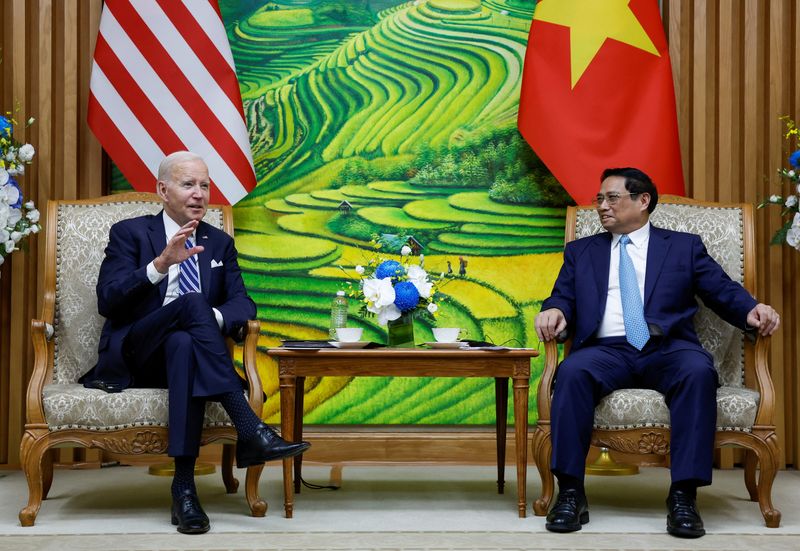HANOI (Reuters) - The United States' move to upgrade relation with Hanoi is not a Cold War move against China, a U.S. National Security Council official said on Wednesday.
"The idea that this is in any way any kind of Cold War move, and also the idea that this diplomatic opening is any kind of effort to choose between Vietnam and China, because I don't think it is either one of those things," Mira Rapp-Hooper, National Security Council Director for the Indo-Pacific, said at a digital news briefing.
Vietnam and the United States on Sunday upgraded their relationship to the highest diplomatic status during a visit to Hanoi by U.S. President Joe Biden.
On Monday, Chinese foreign ministry spokesperson Mao Ning called on the U.S. to "abandon hegemony and Cold War thinking," in her response to the Vietnam-U.S. relation upgrade.
"We demand that the United States, when dealing with relations with Asian countries, must respect the common aspiration of regional countries for stability, cooperation, and development, abide by the basic norms of international relations," Ning said.
Rapp-Hooper said the upgraded partnership with Vietnam is a dynamic, open, inclusive partnership that is intended to support Vietnam and its technological, economic, and development aspirations.
"This relationship isn't about anyone else," she said.

"It's about our two countries and the intrinsic value this relationship has in terms of our shared prosperity, our shared security, our shared interests in a free and open Indo-Pacific, in a free and open South China Sea."
The U.S. and China are Vietnam's largest trading partners. Vietnam and China have for years been embroiled in a dispute over the potentially energy-rich stretch of water, called the East Sea by Vietnam.